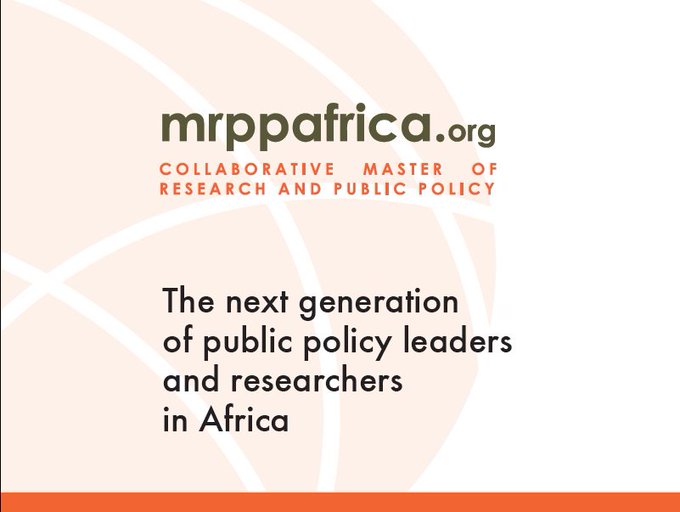
Long accused of being inflexible, African universities have, through a partnership-based research initiative focused on public policy, helped uncover a long-hidden truth: “Universities are not only open to innovative ideas and programmes but can also domesticate, own, finance and nurture them.”
This is according to Beatrice Muganda, programme Director for the Partnership for African Social and Governance Research or PASGR.
Three years ago, PASGR initiated a regional masters in research and public policy. Today it is producing a strong generation of African public policy leaders.
In a review of the programme, Muganda said the universities have effectively integrated the new Master’s programme into their systems, and are meeting the operational costs associated with its delivery.
The programme has drawn attention to the study of public policy as distinct from public administration and management and catalysed the establishment of schools of public policy in South Africa.
“It has raised the profile of participating universities as powerhouses of robust debates on public policy informed by various lenses of opinions by students from various academic and work backgrounds or experience,” she said in an interview with University World News.
There are now 13 universities that offer the programme, namely Nairobi, Egerton, Maseno, Uganda Martyrs, Uganda Christian, Botswana, Dar es Salaam, Mzumbe, Ghana, Lagos, Jos, Ibadan and Sierra Leone.
Between 2014 and 2017, 415 students have enrolled in the programme, surpassing the target by 115 students. The retention rate of 85% is high, with the mostly fee-paying students showing impressive performances.
Filling a gap in research and policy
“It demonstrates amazing faith in the programme to fill a gap in research and public policy,” Muganda, said, adding that masters graduation rates have improved from 19% (achieved in South Africa) to 39%, which is unrivalled by other graduate programmes in African countries.
A total of 30 students have graduated from the first cohort of 77 and 59% of the students are working in advocacy NGOs, research organisations and in various policy-related work in governments.
For example, David Yusuf Segun of the University of Lagos in Nigeria won a fellowship to present a paper at the Resilience 2017 conference on Resilience Frontiers for Global Sustainability in Stockholm, Sweden in August this year, while Kenneth Ogutu, together with his supervisor Professor Mark Okere of Egerton University in Kenya, jointly developed an award-winning proposal on the effects of community policing policy on crime in low-income areas of Nakuru County, Kenya.
Muganda said the programme had produced growth and development in departments and policy centres in terms of teaching and learning materials, and technology. There had also been an increase in staff numbers and improvement of staff capacity.
“We have seen increased attention paid to the dynamics of teaching and learning in university programmes as opposed to enrolments and graduation statistics,” she said.
The two-year Masters treats public policy as an area for research as well as professional practice while focusing on African policy priorities. It draws on multiple social sciences to ground students in relevant theory and concepts.
Muganda said the programme was aimed at social science researchers and policy practitioners. The research option in the programme is designed to build competencies in the design and execution of policy-relevant research or provide sound grounding for doctoral programmes and advanced scholarship in universities and other organisations that undertake research, she said.
The policy practitioner option equips graduates to use research to influence, inform or shape public policy in government, public and private sector organisations in general, civil society organisations, media, and regional and international organisations.
Programme spinoffs
The programme has produced rich training material, and training in innovative pedagogy for university teaching staff can be taken up and offered to other university teaching staff outside of the degree programme.
According to Muganda, there are 38 case studies on African public policy issues authored by teaching staff from African universities available to be used to teach social science programmes on the continent, while there are 24 content videos that can be used to deliver social science programmes.
One of the biggest challenges facing the programme is limited scholarships. Currently, there are 10 scholarships available from the German Academic Exchange Service or DAAD catering for East Africa, and a few from the Konrad-Adenauer-Stiftung foundation.
According to Muganda, the initiative is exploring partnerships with governments to support students on the programme. This has worked effectively in Tanzania while other discussions are ongoing.
“MRPP [Masters in research and public policy] students understand that education cannot be advanced sustainably through dependence. They are therefore willing to invest in themselves, to develop competencies that can enable them to participate in shaping their destinies and those of other citizens through sound public policy and leadership,” she said.
The success of the programme has brought additional challenges in the form of growing interest from other universities wishing to join the MRPP network. “This requires additional resources so we keep fundraising,” said Muganda.
Teaching incentives
Muganda said they have limited incentives for rewarding teaching excellence and the partnership is engaging universities to develop and implement micro policies that recognise and reward teaching excellence and support teachers in showcasing their expertise to colleagues in other universities under a staff mobility programme.
PASGR hopes to keep training a critical mass of teaching staff and develop a system for inducting and mentoring new teachers who join the partnership to keep the work going, she said.
“One of our challenges has been limited connectivity and access to internet services which frustrates the creation and use of online digital content,” said Muganda. The solution has been to encourage non-web-based local area network-based solutions – intranet – and encourage universities to tap into the existing national research and educational networks.
“Our programme still needs to do more in bringing African policy-makers and researchers together to facilitate uptake of emerging research findings to influence public policy for the well-being of all,” she said.
This has been reposted from https://bit.ly/32si1v9